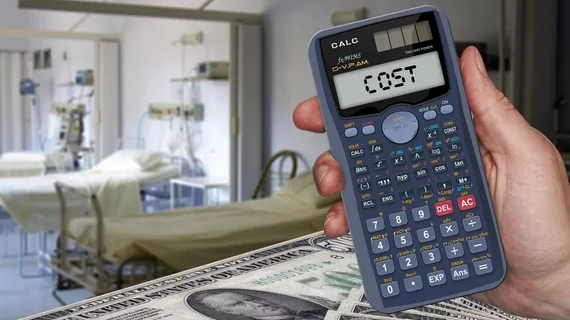AEE use during CIED procedures for HFrEF patients not always cost-effective
The universal use of antibiotic-eluting envelopes (AEEs) during cardiac implantable electronic device (CIED) procedures for patients with heart failure with reduced ejection fraction (HFrEF) is not cost-effective for healthcare providers, according to a new study published in Circulation: Cardiovascular Quality and Outcomes.
“The tradeoff for increased procedural costs with AEE use is likely to meet health system value benchmarks with selective use in patients at increased risk of infection, less so with universal use in this population,” wrote lead author Ronuk M. Modi, MD, with the division of cardiology at Beth Israel Deaconess Medical Center in Boston, and colleagues.
AEE use during CIED procedures is known to reduce the risk of infection, Modi et al. explained. However, it also raises procedural costs by a significant margin.
Overall, assuming the cost per unit for an AEE is $953, AEE use for all initial implantations resulted in an incremental cost-effectiveness ratio of $112,000 per quality-adjusted life-year gained and a 39% chance of being cost-effective.
Meanwhile, AEE use in generator replacement procedures resulted in an incremental cost-effectiveness ratio of $54,000 per quality-adjusted life-year gained and an 84% chance of being cost-effective.
Unless the price of AEEs decreases or they can become infective for a longer period of time, the authors wrote, these devices should only be used when treating certain high-risk patients in certain scenarios. Using them universally for all HFrEF patients, at least at this point in time, does not make financial sense for healthcare providers.
Among the study's limitations, according to the authors, was that the estimate of AEE effectiveness was only based on a single randomized controlled trial.
Read the entire study here.
